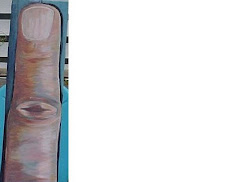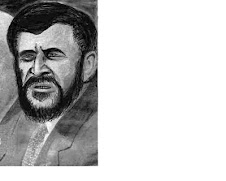 |
| Risk of even a hardScrabble existence is in Jeopardy from Monopoly. |
In fine alignment with my blog's name, which should have as its corollary, "ECB's War against the Euro" or "Japan's War against the Yen", which would also include "London's War against the Pound", (or "England eats the German Diet"?), reminds me of the quote I posted waaayyy long ago, in a post entitled, "They are the rich and they own you ", I cited that, in 1910, as quoted in The New York Review of Books, the ostentatiously arrogant Aristocrat, Frederick Townsend Martin, dangerously pleased with his own excellence, claimed:
"It matters not one iota what political party is in power or what President holds the reins of office.
We are not politicians or pubic thinkers; we are the rich; we own America; we got it, God knows how, but we intend to keep it if we can by throwing all the tremendous weight of our support, our influence, our money, our political connections, our purchased senators, our hungry congressmen, our public-speaking demagogues into the scale against any legislature, any political platform, any presidential campaign that threatens the integrity of our estate."
Of all the things that changed during the 20'th Century, that attitude is not one of them. The idle rich will destroy the very basis of their own ascendancy before ceding one iota of what they consider theirs, one of those things being, as you can see, America.
I was reminded of this while reading Galbraith's "The Nature of Mass Poverty", which reads as if it were written by someone from another planet, as instead of working mightily to deliver Mass Poverty to the citizens of the world, as does the current Aristo-class, it was meant as a treatise on how to alleviate the world from its privations. Can you imagine? The very class that's the first to scream "Class Warfare" while they simultaneously wage a decades-long War on The Poor (There is no such thing as a "War on Poverty", a "War on Drugs", or a "War on Terrorism", these are all nonsensical phrases that belong more in "Alice in Wonderland" than in the real world of resource constraint and "Special" interests, although exactly why some interests are special, while yours are irrelevant is never questioned, even by you. There is only the War on the Poor, The War on People who use Drugs, and the War on Terrorists), have no scruples about waging one themselves. They know this, but luckily, the public is so easily duped, they can take everything away by merely throwing a few slogans around or wearing a flag in their lapels, or draping an enormous flag the size of Rhode Island across the Colonnaded facade of that Temple of Terror, that drips with the blood from the profits of War-mongering, the nasty NYSE (which sounds remarkably similar to Nazi), and then, at the slightest whimper from those whose future they've stolen, scream "Class Warfare!", and we, like the wimps we've become, simply cower and slink away in shame at our unforgivable effrontery.
But back in the fifties, fresh from the carnage into which it unabashedly hurled its citizenry, the Upper classes weren't quite as uppity as they had been, and so economists could dream of such idealistic endeavors as breaking the age-old hold of mass poverty in, of all places, India, by a large and costly program of assistance to Indian agriculture. Not American Indians, mind you. They were under attack as the BIA attempted to dismantle their tribes, abrogate their treaties, and culturally assimilate them into the US by depriving them of the reservations they lived on, so why would they be concerned about American Indian Agriculture? (this was before they were referred to as Native Americans, a nomenclature just as dismissive as America is also a name derived from the Europeans' Grotius-enabled presumption of the "New World" as a land that was "Discovered").
What Grotius did was devise a legal framework by which a country could lay claim to a previously undiscovered land (by a European), and divvied up these discoveries, the natives living there getting scant, if any, recognition, except to be used as slave labor. Today, being more civilized, we simply claim the resources as ours, having appointed someone amenable to our interests as their ruler and then paying some token amount to them, leaving the problem of dealing with the populace of a now-ransacked landscape to them.
Galbraith's supposition, which he expostulates on and explicates in this thoughtful little treatise, is that the land can support only so many, and once that number is exceeded, the problem of poverty for those living off the land's productivity, becomes intractable. They must therefore leave in order to give any hope of a less destitute life to those remaining. This he refers to as breaking the "Equilibrium of poverty", whereby those who don't wish to be accomodative of their lives of hopeless penury, thereby becoming resigned to their fate, are given the option of emigrating to another, more prosperous place, where they supply the cheap labor necessary to allow small businesses to be started and thrive.
Recently in both China and India, this has been happening within the country itself with the same dynamic occurring, but between the countryside and the City, such that the population of cities are burgeoning, even as the rural lands from which their populations came become despoiled by pollution, or built over for some industry or other to build trinkets for foreigners. Substituting burning hydrocarbons for burning carbohydrates as an energy source, for agriculture and industry leaves it easier in times of economic downturns to simply turn the machines off, as opposed to carbohydrate-burning energy sources who need food, air and water at the most inconvenient of times: during an economic depression.
But when hydrocarbons become too expensive, the carbohydrate-burning entities that drive the machines that burn those hydrocarbons, in modern civilizations such as the OECD counties, still have to burn them as they slow the process of burning them for industrial production, but simply to get from point a to point b, of even more importantly, to watch TV. This, from an economic standpoint, means that as evidenced by ZIRP, the difference between what an enterprise can charge for its products or services and the cost to provide those products and services not only gets smaller and smaller, but,as in the case of the entire fracking industry, it actually goes negative, resulting in the equation turning upside down, and just as Capitalists did to colonies, it now does to itself, such that it gets more and more impoverished the more it produces.
What ZIRP is telling you, especially as it not only is not enough to get the economy anywhere near "escape velocity" to drag it out of its interminable stagnation, but according to any understanding of the underpinnings of Capitalism, is that industry is unable, and therefore unwilling, to pay for the risks of its own undertakings and must, like many other of its other expenses, cogently referred to as externalities, push those risks and their attendant costs onto the government, ie, the citizens, who, although they may derive benefit from the products of industrial civilization, such as their I-pads, HDTV's and automobiles, get no dividend on the risk that they are, albeit unbeknownst to them, incurring and forced to pay for when an enterprise fails, yet receive none of the dividends, regardless of how spectacularly it may succeed, those going instead to those who were paid by the government, via ZIRP, the GSE's, or other vehicles used to disguise the non-Capitalist nature of the evolving economy, to assume the onus of devising the company's business plan or even actually running it.
You can tell that this is the case by the extractive mentality of CEO's in this Brave New World, wherein their faith in the future of their enterprise is so shaky that they take everything out of it that they can and move on to the next ailing venture to rid it in turn of all of its carbohydrate-burning elements in favor of their own bank accounts.
The reason for this incapacity to pay for its own expenses is that the loans made for the business plans formed and the collateralized assets pledged, from which is derived the interest rate charged, were all calculated using inputs that have now changed. This is what in the late eighties and early nineties was referred to ad nauseum as a paradigm shift. Yet now, in the 21'st century when the price of energy, as represented by oil, has increased by a factor of ten, which is a paradigm shift of tectonic proportions, one never hears the phrase at all. Which means, there is simply denial that anything fundamental has changed. But, as Galbraith asserts in is little booklet, "The most commonly offered explanation of poverty and well-being invoked the nature of government and the economic system. The economic system as a cause of poverty is invariably cited with passion".
Yet, as can be seen by his next statement: "The people are poor because they have not received the advantages of free enterprise, free competition and the market. Their energies are therefore frustrated by a stupid and costly bureaucracy", he is not referring to the OECD economies but to what then referred to as the third world economies. So what is the solution to a country's mass poverty (45 million people on foodstamps out of a population of 300 million people is, by any definition, mass poverty) when it is free enterprise, free competition and the market that are causing it?
So far the answer to that question is, "Why by cannibalizing the assets built up over the period when the economy was functioning via mortgage schemes, financial shenanigans, Imperial bluster, and monetary hegemony", all while pretending that these subterfuges were only necessary temporarily until we could "rightsize", or increase exports, or frack our way to energy independence. But all of these so-called solutions are mere chimera. Because it is not only Capitalism in the US that is on its back, but worldwide. After a brief spurt in which a chosen minority of a population has gotten spectacularly richer, and a larger swath has become ostentatiously, usually by taking on unwise amounts of debt, better off, the result, country after country, has been to revert to the mass penury it came from , only this time, everyone now being urbanized, without the ability to eke out a painful, but adequate, sustenance by working the soil and coaxing some wherewithal therefrom.
Thus does the answer remain the same as it did when Galbraith published his book in 1979, it is the economic system itself that is the cause of poverty. But because we are in love with the economic system, or at least the idea of it, and the dogmatic faith-based insistence that only Capitalism is acceptable, no matter the fact that it keeps entire populations in grinding penury, and delivers, nor has it ever intended nor claimed to deliver otherwise, the fruits of Labor not to those who work, it was only the now-defunct unions that insisted the balance sheet include Labor, but to those who own the workers, we can expect nothing more from it. This is the course the 21'st century is offering up to us, the new normal of increasing and inescapable mass poverty with those in the ranks of the haves and have mores retaining the status quo via ever larger expenditures on arms, police, prisons, bombs, tear gas, surveillance, and drones, while sequestered in gated communities relying on governments they continually decry, for having the audacity to exist, to provide their security. We, the US, the national entity that has proclaimed itself the exceptional nation that shines out as the "End of History" has provided this example to the rest of the world. Capitalism works. Because Capitalism alone can produce that which is needed for a peaceful co-existence: Force Force and even more Force. So may that Force be with you, because God help you when it's turned against you.



















































No comments:
Post a Comment